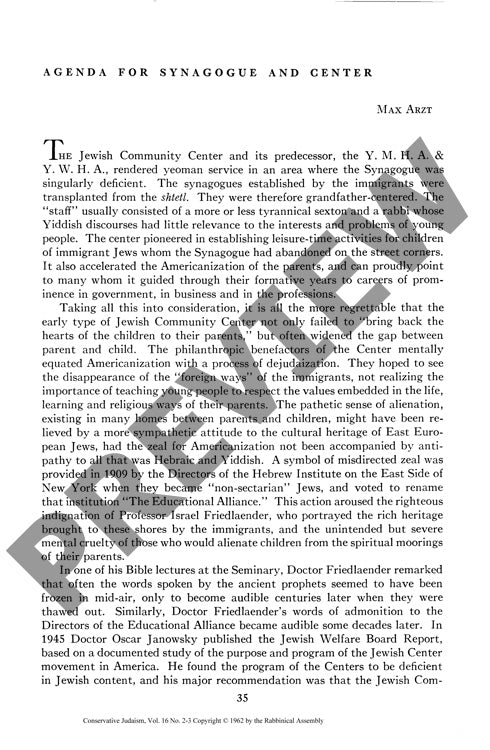Agenda for Synagogue and Center
Couldn't load pickup availability
For decades, Jewish Community Centers and synagogues have maintained an uneasy partnership in American Jewish life, each struggling to define their role in preserving religious identity while meeting modern communal needs. Historical analysis reveals that early Centers successfully provided recreational outlets and Americanization pathways for immigrant children overlooked by traditional synagogues, yet inadvertently accelerated cultural disconnection by conflating American integration with religious disengagement. As American religious pluralism expanded, synagogues reasserted themselves as the primary vehicles for Jewish identity expression, demonstrated through increased membership rates and enhanced religious programming. A marked shift toward greater Jewish religious intensity has emerged across Orthodox, Conservative, and Reform movements, manifested in expanded educational initiatives, summer camps, and day schools. Through institutional critique and historical examination, this research identifies crucial opportunities for collaboration between Centers and synagogues, including coordinated Sabbath programming, equitable funding structures, improved personnel training, and enhanced inter-denominational cooperation. The findings indicate that sustainable Jewish institutional life depends on achieving a delicate balance between religious authenticity and community inclusivity—a balance essential for maintaining Jewish continuity in American society.

More Information
-
Physical Description
-
Publication Information
Published 1962
ISBN
-
Publication Credits
Max Arzt

